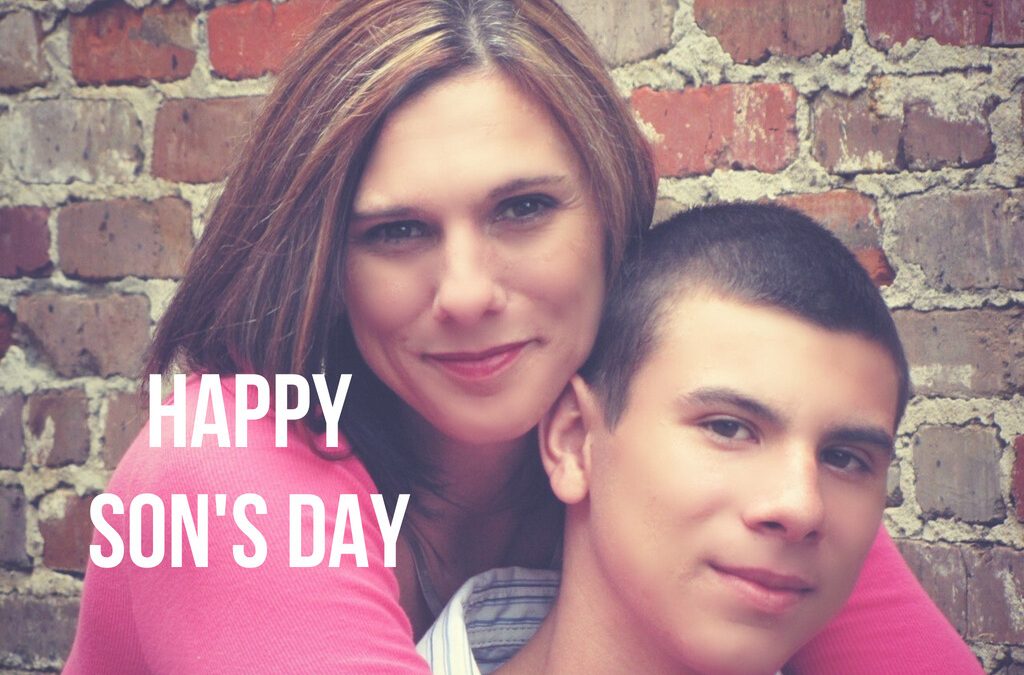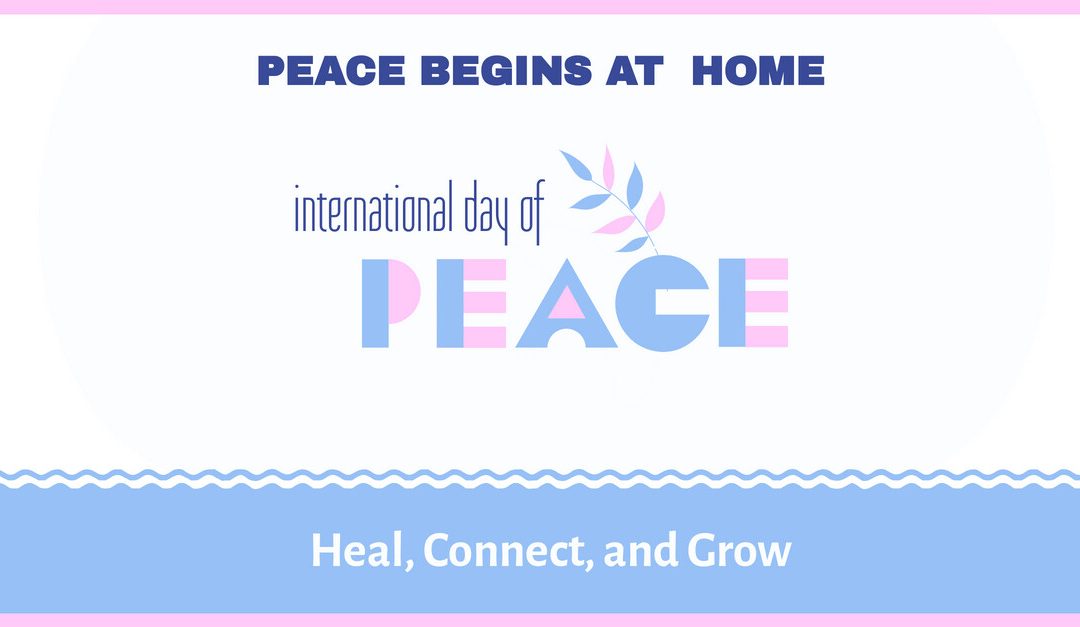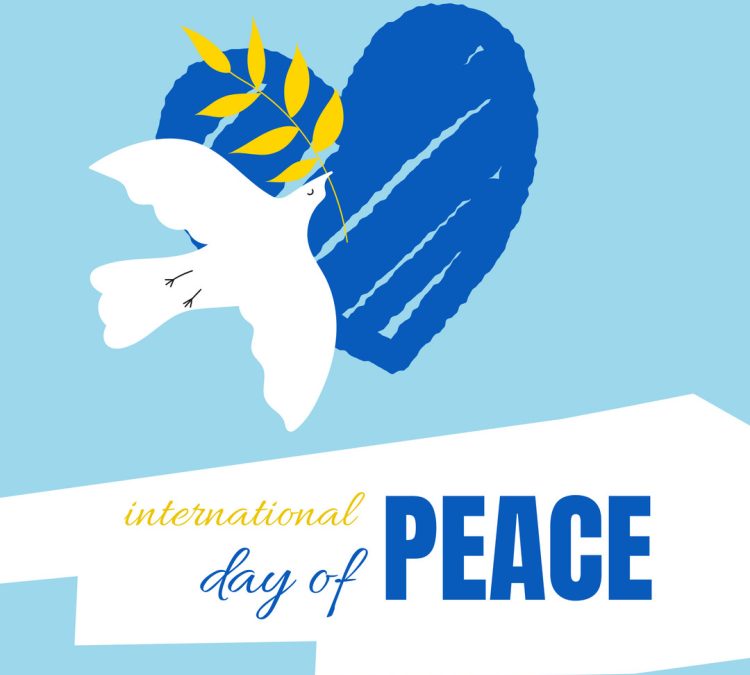
by Marisa Ferrera | Sep 28, 2024 | Relationships, Special Days
As we celebrate National Son’s Day, it’s a perfect time to reflect on the unique bond between mothers and their sons. This day serves as a reminder of the love, pride, and sometimes the challenges that come with raising a son. For many mothers, the transition of their son from childhood to adulthood can bring about a shift in their relationship that’s both exciting and challenging. If you find yourself struggling to maintain a close connection with your adult son while staying true to yourself, this is an opportunity to explore how you can foster a healthier, more fulfilling relationship.
Here’s how you can begin to create a healthier relationship with your adult son while staying true to yourself.
1. Acknowledge the Shift in Dynamics
The first step toward healing is recognizing that your relationship has changed. Your son is no longer the little boy who relied on you for everything; he’s a grown man with his own thoughts, feelings, and life choices. Acknowledging this shift can help you adjust your expectations and approach your relationship with the respect and understanding that adulthood requires.
2. Embrace Open and Honest Communication
Healthy communication is the cornerstone of any relationship, especially between a mother and her adult son. It’s essential to express your thoughts and feelings openly while also being compassionate. Avoid making assumptions about how your son feels; instead, ask him directly. Encourage a two-way dialogue where both of you feel heard and valued. Remember, it’s okay to set aside pride and be vulnerable—this can lead to deeper understanding and connection.
3. Create and Respect Boundaries
As much as you want to be there for your son, it’s crucial to establish healthy boundaries that protect both of you. Boundaries are not about shutting each other out; they’re about creating a space where both parties can thrive. Discuss what boundaries are important for each of you, whether it’s about the frequency of visits, topics of conversation, or involvement in each other’s lives. Respecting these boundaries shows that you value each other’s independence and personal space.
4. Let Go of Control
One of the hardest things for a mother is letting go of the desire to control or influence her son’s choices. But as difficult as it may be, letting go is vital to fostering a healthy relationship. Trust that you’ve raised a capable individual who can navigate life’s challenges. Offer guidance when asked, but avoid imposing your views or solutions. By stepping back, you give your son the room to grow, learn, and come to you on his own terms.
5. Use Conflict as an Opportunity for Growth
Conflict is inevitable in any close relationship, but it doesn’t have to be destructive. Instead of avoiding or fearing conflict, view it as an opportunity to address underlying issues and strengthen your relationship. Approach disagreements with a mindset of healing rather than winning. Ask yourself what the conflict is really about—often, it’s not just about the surface issue but deeper feelings of fear, disappointment, or unmet expectations. Use these moments to heal old wounds and create new understanding between you and your son.
6. Prioritize Self-Care and Personal Growth
While nurturing your relationship with your son, it’s equally important to nurture yourself. Make time for activities that bring you joy, relaxation, and fulfillment. Engage in personal growth practices, such as journaling, meditation, or seeking support from a coach or therapist. By taking care of yourself, you’ll have the emotional strength and clarity to show up as your best self in your relationship with your son.
7. Celebrate His Independence
Finally, celebrate your son’s journey into adulthood. Appreciate the person he has become and the unique path he is carving out for himself. Let him know that you are proud of his achievements and support his decisions. By celebrating his independence, you reinforce your trust in him and your belief in his ability to lead a fulfilling life.
Final Thoughts
Creating a healthier relationship with your adult son doesn’t mean losing yourself in the process. It’s about finding a balance where both of you can flourish—individually and together. By embracing these principles, you can foster a bond that is not only strong but also enriching and deeply fulfilling for both you and your son. Remember, it’s never too late to heal, grow, and build a relationship that honors the love you have for each other while staying true to who you are.
If you’re experiencing a challenging relationships with your son, I invite you to schedule a complimentary Relationship Renewal Discovery Session.
Get the clarity and direction you need to transform conflict into deeper connections and experience more peace, love, and joy.

by Marisa Ferrera | Sep 21, 2024 | Relationships, Special Days
On International Peace Day, we reflect on the power of peace in the world around us. Yet, what if the journey toward global peace begins within our own hearts, homes, and families? Family relationships, with all their history, emotions, and complexities, can sometimes feel like the last place where peace is possible. Yet, these relationships are the most important for creating the deep healing that the world so desperately needs.
As an empowerment coach for heart-centered women, I believe that every conflict is an opportunity to heal, deepen connections, and create more peace—not only in our families but in the world as a whole.
The Ripple Effect of Family Peace
When we experience peace in our closest relationships, it ripples out into all areas of our lives. A family unit that fosters understanding, empathy, and love can influence communities, workplaces, and society at large. Every peaceful resolution to a family conflict contributes to a larger wave of global harmony.
If we each take responsibility for resolving conflicts within our families, imagine the potential impact on our neighborhoods, cities, and even across nations. By creating more peace within our personal relationships, we can play a vital role in fostering a more peaceful world.
Proven Strategies to Resolve Conflict Peacefully
While conflict is inevitable, it doesn’t have to create separation or pain. In fact, conflict can be a gateway to greater understanding, trust, and connection. Here are some proven strategies to help you resolve conflict peacefully in your family relationships:
1. Practice Active Listening
One of the most powerful ways to create peace is through active listening. When emotions run high, it’s easy to focus on our own feelings and responses, but true understanding comes when we fully hear and acknowledge the other person’s perspective.
How to do it: Stay present during conversations. Reflect back on what the other person is saying without interrupting or jumping to conclusions. Ask clarifying questions, and be genuinely curious about their feelings.
2. Approach with Compassion, Not Judgment
In moments of conflict, it’s easy to get defensive and assign blame. However, when we approach others with compassion, we can soften the space for dialogue and healing.
How to do it: Before responding in a heated moment, take a breath and ask yourself, “What might this person be feeling? What hurt might be underlying their words?” This shift in perspective can transform conflict into a conversation rooted in empathy.
3. Own Your Feelings with “I” Statements
Using “I” statements helps take responsibility for your emotions without blaming others. This simple shift in language fosters a safer environment for honest communication.
How to do it: Instead of saying, “You never listen to me,” rephrase it to, “I feel unheard when we have these conversations.” This subtle change can prevent defensiveness and open the door to understanding.
4. Pause Before Reacting
In the heat of conflict, emotions can overwhelm rational thought. Learning to pause before reacting helps create space for a more thoughtful, loving response.
How to do it: Practice taking a pause—whether for a few seconds or longer—when you feel triggered. This gives you time to calm down, reflect on your emotions, and respond in a way that aligns with your values of peace and connection.
5. Focus on Solutions, Not Problems
It’s easy to dwell on the hurt or frustration in a conflict, but true peace comes when we shift our focus toward finding solutions together.
How to do it: Ask the other person what a solution might look like for them and share your own ideas. Collaborating on a resolution strengthens the bond and ensures that both parties feel heard and valued.
How Family Peace Leads to Global Peace
When we model peaceful conflict resolution within our families, we demonstrate to others—especially our children—the importance of empathy, understanding, and cooperation. Children raised in peaceful homes grow up to be compassionate adults who bring those same qualities into their relationships, workplaces, and communities.
By healing the divides in our own families, we contribute to healing the divides in society. Each peaceful interaction is like planting a seed of love, kindness, and understanding that can grow into something much larger.
A Free Gift: Resolve Conflict Peacefully
To support you on your journey toward more peaceful family relationships, I’m offering a free guide called “Resolve Conflict Peacefully.” This guide will walk you through 10 Simple Steps for dealing with conflict in ways that will stop conflict from escalating and lead to a peaceful resolution. Whether you’re in the midst of a challenging situation or simply want to strengthen your relationships, this guide will be an invaluable resource.
To request your free guide, simply click here and begin your journey to creating more peace, both within your family and in the world around you.
Conclusion
As we celebrate International Peace Day, let’s remember that peace begins at home. By choosing love, empathy, and understanding in our family relationships, we contribute to a more peaceful world. When we heal our hearts and our homes, we heal the world.
Let’s work together to make family peace a reality—because every step toward peace in our relationships is a step toward global harmony.
If you’re ready to transform your challenging family relationships into sources of love and harmony, I invite you to schedule a complimentary Relationship Renewal Discovery Session. Together, we can create peace, one relationship at a time.

by Marisa Ferrera | Jun 13, 2024 | Relationships, Special Days
Transforming Conflict into Connection: A Father’s Day Guide
Father’s Day is a time to celebrate the unique bond between fathers and their children. However, for many, past conflicts and unresolved issues can complicate this relationship. Instead of letting these conflicts create distance, you can use them as opportunities to build a deeper, more meaningful connection with your father. Here’s a step-by-step guide to turning conflicts into deeper connections this Father’s Day.
Step 1: Reflect on the Conflict
Before addressing any conflict, it’s important to take some time to reflect on it. Ask yourself:
- What was the conflict about?
- How did you feel during the conflict?
- How do you feel now when you think about the past unresolved conflict?
- What needs were not met for you during this conflict?
- What do you believe was your father’s perspective?
- How do you guess your father felt during the conflict?
- How do you guess your father feels now about the past unresolved conflict?
- What needs, would you guess, weren’t met for your father during the conflict?
Understanding your own feelings and unmet needs and guessing the feelings and unmet needs of your father will prepare you for a more constructive conversation.
Step 2: Acknowledge Your Feelings
Once you have reflected on the conflict, acknowledge your feelings. It’s okay to feel hurt, angry, or disappointed. Recognizing and honouring your emotions is a crucial step towards healing. Remember that these feelings are valid and an essential part of your experience.
Step 3: Choose the Right Time and Place
Timing is key when it comes to discussing sensitive issues. Choose a time when both you and your father are likely to be calm and free from distractions. A quiet, comfortable setting can help create a conducive environment for an open and honest conversation.
Step 4: Start with Empathy
Approach the conversation with empathy and understanding. Begin by expressing your appreciation for your father and acknowledging his positive qualities. This sets a positive tone and shows that you value the relationship.
For example, you could start by saying, “Dad, I really appreciate everything you’ve done for me. I know you care about our relationship as much as I do.” What’s important is that you share authentic feelings about something positive to create a heart-to-heart connection.
Step 5: Use “I” Statements
When discussing the conflict, use “I” statements to express your feelings without sounding accusatory. This helps in avoiding a defensive reaction and keeps the focus on your perspective.
For example, instead of saying, “You never listen to me,” try saying, “I felt angry when I expressed my thoughts to you and didn’t feel heard or understood.”
Step 6: Listen Actively
Active listening is crucial in any meaningful conversation. Allow your father to share his perspective without interrupting. Show that you are listening by nodding, maintaining eye contact, and using affirming words like “I understand” or “I see” or “tell me more about that.”
Reflect on what you hear to ensure understanding. For example, “It sounds like you felt upset when I said _____. Is that right?”
Step 7: Seek Common Ground
Find common ground by acknowledging any valid points your father makes. This demonstrates that you value his perspective and are willing to work towards a peaceful resolution.
For example, “I understand why you felt that way, and I agree that we need to communicate better.”
Step 8: Apologize and Forgive
If appropriate, offer a genuine apology for your part in the conflict. This can pave the way for mutual forgiveness and healing.
For example, “I’m sorry for not considering your feelings. I hope we can move past this and build a stronger relationship.”
Also, be open to forgiving your father for any hurt he may have caused. Forgiveness is a powerful tool for letting go of resentment and moving forward.
Step 9: Create a Plan for Moving Forward
Work together to create a plan for preventing similar conflicts in the future. Discuss how you can improve communication and set boundaries that respect both your needs.
For example, “Let’s agree to talk things out calmly instead of raising our voices when we disagree.”
Step 10: Celebrate the Progress
Finally, celebrate the progress you’ve made in transforming conflict into connection. Acknowledge the effort both of you have put into improving your relationship. Use Father’s Day as an opportunity to reinforce your commitment to a healthier, more meaningful relationship.
For example, plan a special activity or share a heartfelt note expressing your gratitude for the renewed connection.
Conclusion
Turning conflict into connection is not always easy, but it is a deeply rewarding process that can strengthen your relationship with your father.
By approaching conflicts with empathy, active listening, and a genuine desire to understand each other, you can transform challenges into opportunities for growth and deeper connection. This Father’s Day, take the first step towards healing and celebrate the bond you share with your dad.
Here’s a free gift that can further support you in resolving conflicts peacefully.

If you find yourself stuck resolving past issues and conflicts with your father, I invite you to schedule a complimentary call with me. We can take a closer look at what might be in your way and decide together whether or not I’m the best person to help you.

by Marisa Ferrera | Jan 1, 2024 | Relationships, Special Days
The dawning of a new year often brings with it a collective energy for change and growth. It’s a time when resolutions are made and aspirations for a brighter, more fulfilling future take root. In this spirit, I invite you to join me in a resolution that extends beyond personal goals—a resolution to cultivate healthier and more harmonious adult family relationships.
The Ripple Effect of Connection
Beyond the realm of personal growth, let’s take a moment to recognize the profound impact our connections have on the world around us. Our relationships, particularly within the family unit, hold the power to shape the energy of our homes and, in turn, contribute to a world filled with love, peace, and positive vibrations.
The Heart of the Resolution: Healthy Boundaries
At the core of this resolution lies a commitment to establishing and respecting healthy boundaries within our families. This practice is not merely an expression of self-love but also a potent means to elevate the frequency and vibration of the earth. By creating clear and respectful boundaries, we open up a space for authentic connections, understanding, and personal growth.
In the intricate dance of family dynamics, boundaries act as the guideposts that help navigate the ebb and flow of relationships. They serve as the foundation for creating an environment where love and harmony can flourish.
Conscious Prioritization: Communication, Empathy, and Forgiveness
As we step into the new year, let’s consciously prioritize open communication, empathy, and forgiveness within our families. These seemingly simple yet incredibly powerful acts not only strengthen the bonds that tie us together but also send waves of positivity into the world. Imagine the collective impact if each of us dedicates ourselves to fostering love and compassion within our family units!
The Extended Reach of Positive Energy
It’s crucial to remember that the energy we radiate within the walls of our homes and within our family relationships extends far beyond. It contributes to the collective energy of the world and plays a role in shaping a more peaceful global environment. As we embark on this new year, let’s be mindful of our thoughts, words, and actions, understanding their potential to elevate the energy around us.
May the coming year be filled with moments of joy, understanding, and growth within our families. Together, let’s create a ripple effect of love that extends far beyond our homes, touching the hearts of others and inspiring positive change around the globe.
Wishing you a New Year filled with love, laughter, and transformative connections!

by Marisa Ferrera | Sep 21, 2023 | Relationships
Introduction:
On this International Day of Peace, as we celebrate global unity and tranquility, let’s shift our focus inward, to our own challenging adult family relationships. These intricate dynamics can be sources of both joy and turmoil. However, it’s never too late to embark on a journey towards understanding, empathy, and unity within our families. In this blog post, I’ll explore seven actionable steps to foster peace and harmony within your adult family relationships.
1. Communication: The Bedrock of Healthy Relationships
– Open, honest, and empathetic communication is the cornerstone of any thriving relationship. Taking the time to truly listen, understand, and express your thoughts calmly can pave the way for meaningful connections.
2. Forgiveness: A Path to Healing and Reconciliation
– Letting go of grudges and past conflicts is a powerful act of love. Forgiveness is not a sign of weakness but a courageous step towards healing and reconciliation, allowing space for new beginnings.
3. Empathy: Stepping into Each Other’s Shoes
– Practicing empathy involves putting yourself in the shoes of your family members. Acknowledge that everyone has their unique struggles and challenges, and they are doing the best they can with their self-awareness and the tools at their disposal.
4. Boundaries: Preserving Personal Space and Autonomy
– Establishing clear boundaries that respect each individual’s needs and desires can prevent misunderstandings and conflicts. Healthy boundaries promote mutual respect and understanding.
5. Quality Time: Strengthening Emotional Bonds
– Invest time in shared activities that promote bonding. These shared experiences can help reinforce the emotional connection among family members.
6. Seek Mediation: Facilitating Heart-Led Discussions
– In cases where tensions run high and communication becomes challenging, consider involving a neutral third party, such as a therapist, counselor, or coach. Their guidance can help mediate and facilitate discussions, ensuring that emotions are expressed constructively.
7. Self-Care: Nurturing Your Well-Being
– Remember that your well-being is crucial. Taking care of yourself physically, mentally, and emotionally equips you to handle family challenges effectively. Self-care is not selfish; it’s an essential part of maintaining healthy relationships.
Conclusion:
Creating peace and harmony within your adult family relationships is an ongoing journey, one that requires patience, understanding, and commitment. Small steps can lead to profound changes in the dynamics of your family. As we celebrate International Day of Peace, let us take these actionable steps to heart, striving to transform our family connections into sources of love, support, and harmony.
If you’re interested in delving deeper into this transformative journey and discovering how to magnify your family relationships into sources of love, harmony, and deeper connections, I invite you to schedule a complimentary Relationship Renewal Discovery Session. Together, let’s create a world of peace, one family at a time. 🕊️

by Marisa Ferrera | Jun 14, 2023 | Relationships
When we think of Father’s Day, it’s natural for some of us to envision a day filled with love, celebration, and gratitude for the men who have helped shape our lives. However, for many, this day can also bring forth feelings of sadness, frustration, and even resentment due to challenging relationships with their fathers. But amidst these complexities, there’s a beautiful opportunity for growth, healing, and, most importantly, embracing compassion and forgiveness.
In this blog post, we’ll explore how you can nurture your relationship with your father by cultivating compassion and forgiveness, allowing for the transformation of your connection.
The Power of Compassion
Compassion is the seed that has the power to mend even the deepest wounds. It’s a gentle reminder that behind every human being lies a complex tapestry of experiences, emotions, and aspirations. By opening our hearts to compassion, we invite a shift in perspective that can illuminate the path to healing.
Take a moment to reflect on your father’s journey, the struggles he may have experienced, and the wounds he may carry. Cultivate empathy and compassion for his own human experience, recognizing that we all have challenges to face.
The Healing Power of Forgiveness
Forgiveness is not about condoning hurtful actions. It’s a transformative act of releasing the burden of resentment and choosing to free yourself from the emotional chains that hold you back. By embracing forgiveness, you open the door to healing and the possibility of a renewed connection.
Reflect on the grievances and resentments you hold towards your father. Consider writing a forgiveness letter, not necessarily to send, but as a cathartic exercise to release the negative emotions and support your own healing journey.
Cultivating Self-Compassion
Before we can extend compassion to others, we must first nurture it within ourselves. Self-compassion is the foundation upon which we build the capacity to empathize with and better understand our fathers. By showing kindness and acceptance toward our own wounds, we create a space for healing that can extend to our relationships with others.
Practice self-compassion daily. Treat yourself with kindness, acknowledge your emotions without judgment, and practice self-care rituals that nourish your mind, body, and soul. This self-compassion will radiate into your relationship with your father.
Communication and Understanding
Communication that is open and honest builds a bridge between hearts. We create an environment where our fathers may communicate their own truths and we can find common ground through encouraging active listening, sharing our feelings, and seeking understanding.
If you’re looking for additional support in cultivating empathy and compassion for your father, I have a special offer just for you.
Experience empathy and compassion and gain insights through my private Connection Practice Coaching Session. During this personalized session, I will guide you through a transformative process that will not only help you understand your father on a deeper level but also create a more nurturing connection with him.
In honor of Father’s Day, I’m offering a 50% promotional discount on all Connection Practice Coaching Sessions booked until the end of the month.
Don’t miss out on this opportunity to create positive change in your relationship with your father. Simply click the link below to book your session and remember to use the Promo Code: “Father” to claim your discount.
If your father has passed, a Connection Practice Coaching Session can help you work through an unresolved conflict or challenge you had with him so you can let it go with peace and love.
Let this Father’s Day be a turning point—a time of healing, growth, and nurturing connections. Embrace compassion and forgiveness and watch your relationship with your father transform. It’s never too late.
FATHER’S DAY PROMOTION
Connection Practice Private Coaching Session
50% OFF — Promotional Code: Father
Click Here to Learn More
LIMITED TIME OFFER








